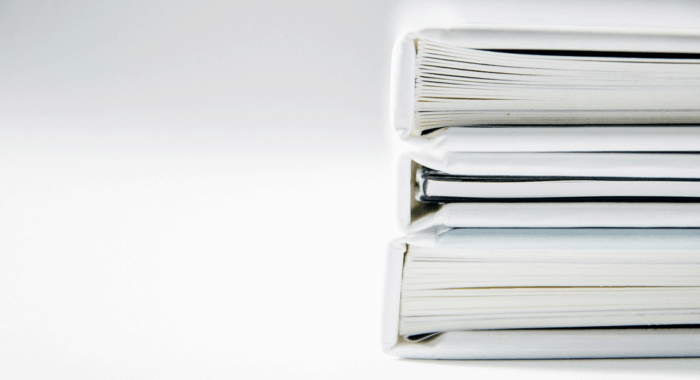Bylaw Coverage After an Insurance Loss Part Two

When your house was built, it probably met the building codes in place at the time. Depending on how long ago that was, there may be features that are out of date or even unsafe compared to current standards. While most building codes have a grandfather clause that frees homeowners from an obligation to keep up with the code as it changes; engaging in home improvements and renovations often opens you up to the new requirements. When the homeowner makes significant changes to their property, they must make upgrades to ensure the whole structure complies with contemporary regulations.
Homeowners planning renovations have the time and opportunity to review building codes and should know the penalties for not following them. For homeowners forced to consider rebuilding their home quickly after an insured loss (like a fire or flood), new building codes can come as a much bigger surprise and leave them with less time to look into the finer details.
Why You Need Bylaw Coverage
In our first piece on bylaw/upgrade coverage, we explain why it’s so important to include this type of insurance coverage in your policy. To summarize:
- Structure/Dwelling insurance pays for repairs that will bring your home back to its original condition before the loss; but
- If local bylaws require you to make upgrades to your home during the repair process, your insurance policy may not cover those extra costs; so
- Bylaw/upgrade coverage makes sure your policy will respond to at least some of those additional costs incurred with regard to the damaged portions of the home that did not meet current code.
Insurance for Unanticipated Costs
Canada is updating its building codes to reflect a changing climate, including requirements for:
- More resilient roofing materials;
- Pavement mixes that will mitigate flooding;
- Additional basement flood protection; and
- New structural design rules.
Let’s take a look at a scenario that will become increasingly common in the coming years. A fire has partially damaged your home, including the roof. The building code has changed and now you’re required to replace your roof with materials that will be more resistant to the elements, including fire risks such as wildfire embers.
Using those materials will be considerably more expensive than replacing your roof to its original condition. Without bylaw/upgrade coverage, you could be on the hook for the entire cost differential.
Some policies will earmark funds for these unanticipated costs. You can talk to your insurer about adding this type of coverage to your policy if you’re worried about unanticipated costs.
Upgrades that reduce further risks of damage due to insured perils may qualify you for lower insurance premiums in the future. Even if you pay to upgrade certain parts of your home upfront, talking with your insurance provider about those upgrades may help you better understand potential changes to your coverage needs and/or premiums.
Understanding Building Codes
If we strip it down to basics: what are upgrades and why do you need them after an insurance loss? Upgrades are changes to the current form of a construction element that weren’t required when the original element was put in, but are required by newer building codes. Most are in place to ensure the safety of the people who live or use the building. For example, a home must have a minimum number of exits depending on its size and/or number of residents for fire safety purposes. Bylaws such as these can accidentally create iconic design features and movements, such as New York City’s fire escapes; but more often they deliberately target the way your home functions.
Building codes can be complicated. They may require adjustments depending on your neighbourhood, street, or zone (even within the same city). For example, houses in some residential zones in Toronto cannot have two front doors even if they have a secondary suite. This is just one of many local examples you might find across Canada.
Your best resources for understanding local bylaws are going to be the engineer and/or contractor you retain to complete the repairs. They can inform you when part of the structure of your home needs to be upgraded and provide you with an estimate of the costs.
Changes to Undamaged Parts of the House
In some cases, any renovations or repairs done to an area of a house pull the homeowner into a space where they will have to bring every aspect of the house up to code, whether the renovations or repairs target that specific element of the space or not. This can lead to problems if you’re repairing your home after an insurable loss. Even if you have bylaw/upgrade coverage, there could be complications that require you to cover a portion of the increased costs.
If municipal bylaws require you to update part of your home that was undamaged by the insured loss (i.e. the fire didn’t burn that part of the structure), the insurance company will likely deny coverage for those repairs. Each case is incredibly context-specific and could benefit from a professional review.
The issue is that Structure/Dwelling insurance is designed to replace only those parts of your home that have been damaged by the insured peril. If an insurance adjuster has determined that your home experienced a partial loss, and the part of your home no longer up to code was outside the area of the loss, you could be responsible for paying for those upgrade costs.
Who Can Help with Your Insurance Claim?
When it comes to building codes and repairs, rely on the contractors you’ve hired to help you through rebuilding. When it comes to dealing with insurance adjusters, you may want to find a public adjuster or a law firm that deals with residential insurance claims.
If your insurer has denied coverage for an upgrade required by new building codes, it may be easier to navigate if you’re already getting help. At Virani Law, we specialize in helping families through the insurance process. If you’ve experienced a loss like a fire or a flood, your family is having a difficult time enough as it is: you don’t need to be dealing with the complex intricacies of coverage denials or limitations as well.
Working with someone on your insurance claim is a way to ensure that there are no misunderstandings between you and the insurance company. You should be confident that your claimable items are not being overlooked by the insurance adjuster, and that every aspect of your claim is being fairly considered.
Bylaw/upgrade coverage is not usually top-of-mind when you’re getting homeowners insurance. However, the costs can be considerable, especially when it comes to roofs, wiring, or plumbing. Check your policy and make sure you have coverage.


